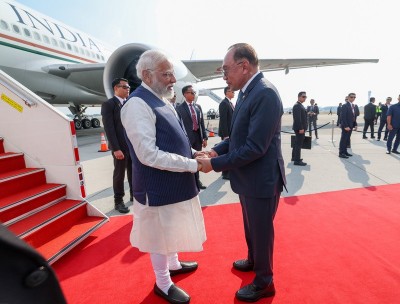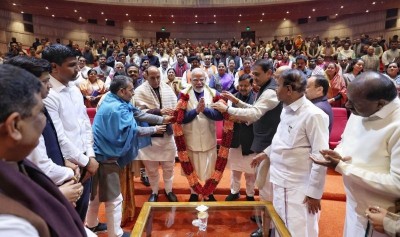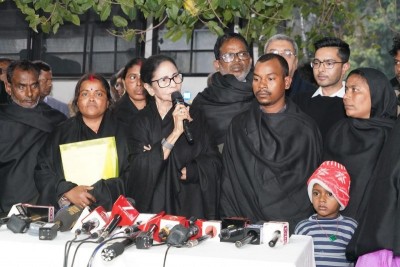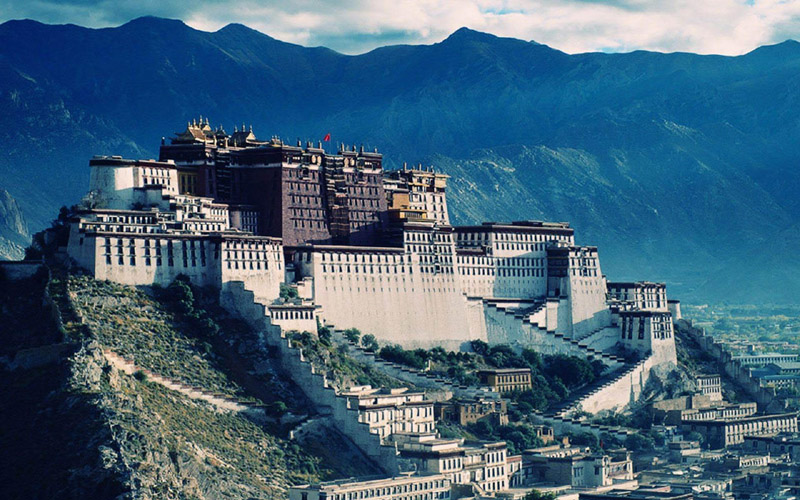 Tibet
Tibet
China, India, US and the significance of the Tibetan Policy and Support Act
It is too often the case in the modern world that the voices of the suppressed, especially those from numerically smaller groups, get lost in the vast hollows of apathy and self-interest that seem to have consumed the conscience of powerful nations.
It was, therefore, a heartening sign that the United States (US), even if spurred by its escalating conflict with China, on 21 December stood up strongly for the rights of the long-suffering people of Tibet by adopting the Tibetan Policy and Support Act (TPSA).
A major upgrade to US policy on Tibet, the TPSA represents a direct challenge to China’s continuing repression of the Tibetan people. India, which shares a long border with Tibet along a section of which its military has locked horns with China for several months now, would view the TPSA as a welcome legislation.
Although India has thus far consciously kept Tibet off the table in the expectation that a measured approach overall would help in resolving the border standoff, China has remained intransigent.
The TPSA could, in the event of China preferring strife over cordiality, provide a template and options for India to examine and expand upon in its future dealings with the communist dragon.
Introduced with bipartisan support in the House by Representatives James McGovern and Chris Smith, and by Senators Marco Rubio and Ben Cardin, the TPSA seeks to build on the Tibetan Policy Act of 2002.
The International Campaign for Tibet, one of the most active organizations espousing the Tibetan cause, believes that “The bipartisan TPSA will launch a new era in US policy on Tibet, a historically independent country in Central Asia that has become one of the least free places on Earth under the repressive rule of the Chinese government”.
The TPSA makes it official US policy that the selection of Tibetan Buddhist leaders, including a future Dalai Lama, should follow the instructions of the 85-year-old current Dalai Lama and the desires of the Tibetan Buddhist community, with no interference from the Chinese government.
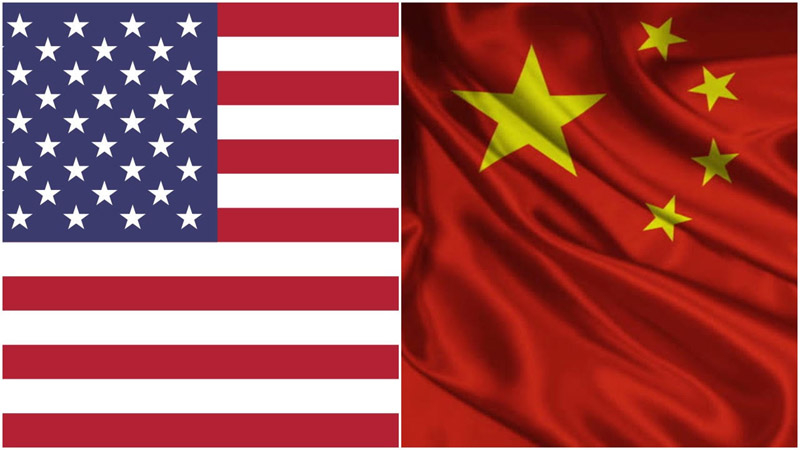
The US will sanction Chinese officials if they carry out their plans to appoint their own Dalai Lama in the future.
These sanctions could include having their assets frozen and their entry to the US denied. The State Department will also have to work at the international level to build support for Tibetan Buddhists’ freedom to choose their own leaders without government interference.
The Chinese Communist Party, which insists that it must approve the Dalai Lama’s reincarnation, had introduced new rules in 2007 for the selection and appointment of reincarnate lamas, giving the government authority over the entire process. Chinese officials have said they will use this authority to appoint a future Dalai Lama, something that is unacceptable to Tibetan Buddhists.
As the Dalai Lama put it in a statement in 2011, “It is particularly inappropriate for Chinese communists, who explicitly reject even the idea of past and future lives … to meddle in the system of reincarnation”. The Dalai Lama has also said that if he does reincarnate, he will do so in a free country like India, where he has lived in exile since China’s conquest of Tibet in the 1950s.
The TPSA commended the Dalai Lama “for his decision to devolve political authority to elected leaders in accordance with democratic principles” and the Tibetan people for adopting a democratic system of government in exile. It added that the Central Tibetan Administration (CTA), the political office set up by the Dalai Lama’s establishment, represents and reflects the aspirations of Tibetan people around the world. It pledges to strengthen diplomatic efforts through the office of the Special Coordinator for Tibetan issues in the State Department to push for a negotiated solution between the Chinese government and the representatives of the Dalai Lama.
The US State Department had in October named top human rights official Robert Destro as the Special Coordinator for Tibetan issues, much to the chagrin of China, whose Foreign Ministry spokesman Zhao Lijian responded by saying that “The US side should stop using the Tibet issue to interfere in China’s internal affairs and destroy Tibet’s development and stability”. The TPSA has now expanded the role of the Special Coordinator. The TPSA also requires the US Secretary of State to urge the government of Nepal to honor its “Gentleman’s Agreement” with the United Nations High Commissioner for Refugees (UNHCR) regarding the rights of Tibetans in Nepal. Under strong pressure from China, Nepal in recent years has partially reversed its accommodative policy towards Tibetan exiles.
Highlighting the need for a US diplomatic presence in Tibet, the act mandates that the Secretary of State “not authorize the establishment in the United States of any additional consulate of the People’s Republic of China until such time as a United States consulate in Lhasa, Tibet, is established”. In July, China had forced the US to close its consulate in Chengdu, which serves as a major gateway to Tibet, after the US forced the closure of the Chinese consulate in Houston.
The Act also requires the Secretary of State and the Secretary of Commerce to work with US businesses and individuals to make sure their business activities in Tibet follow the UN Guiding Principles on Business and Human Rights. It formalized funding for humanitarian projects for Tibetans inside and outside Tibet until at least 2025.
Tibet, which provides water to more than 1 billion people across Asia, is warming nearly three times faster than the global average. Under the TPSA, the US has recognized the strategic importance of the Tibetan plateau and the threat that climate change poses to it. It has also identified many of the environmental crises taking place in Tibet under China’s rule, including melting glaciers.
The Secretary of State will henceforth have to pursue collaboration with China and international institutions to monitor Tibet’s environment and support the Tibetan people’s efforts to preserve it. The Secretary will be obliged to encourage a regional framework on water security.
He will also have to engage China and NGOs to promote the participation of Tibetan nomads and other Tibetans in the development and implementation of grassland management policies in Tibet in order to utilize their indigenous experience. Further, development projects supported by the US and international financial institutions and organizations should not incentivize or facilitate the forced relocation of Tibetan nomads.
The formal acknowledgement by the US of the CTA, Tibet's elected parliamentary government based in Dharamshala, India, as the legitimate institution reflecting the aspirations of the Tibetan Diaspora around the world and the Sikyong as the President of the CTA is a major development. A formerly independent nation, Tibet was invaded and incorporated into China by force nearly 70 years ago following which the Dalai Lama and thousands of his followers fled into exile in India and other countries around the world. The TPSA would not have been passed had it not been for the concerted and persistent campaign carried out by these exiles, Tibetan rights groups and their supporters worldwide, but especially in the US. A deep conviction in their cause, sincere perseverance with their efforts, and sound wisdom in their decision making meant that there was no let up, even when progress was labored. This holds invaluable lessons for other suppressed groups.
The passage of the TSPA also has a message for other responsible democracies across the world.
Till now, most other democracies that profess liberal values and respect for human rights have limited themselves to periodically and passingly mentioning the Tibet issue to visiting Chinese delegations. Over the past year, however, the European Union’s foreign policy chief, Josep Borrell, has said the EU opposes any interference in the Dalai Lama’s succession by the Chinese government. Officials in Belgium, Germany and The Netherlands have expressed similar positions.
It would be worth watching whether a few such democracies take the cue from the US and acknowledge the sufferings of the Tibetans more substantially. After all, respect for human rights can hardly be allowed to be subservient to the economic benefits of trading with China.
While the Tibetan community welcomed the enactment of the TPSA and expressed gratitude for it, China took strong exception to the US, despite its earlier acceptance of the ‘One China Policy’, effectively asserting its recognition of Tibet’s status separate from China, if not independent of it.
Lobsang Sangay, the Sikyong of the Central Tibetan Administration (CTA), said that “The Tibetan Policy and Support Act of 2020 is a tribute to the great legacy of His Holiness the Dalai Lama and to the courage and solidarity of six million Tibetans inside Tibet… This is a victory for the Tibetan freedom struggle”. He added, “By passing the TPSA, Congress has sent its message loud and clear that Tibet remains a priority for the United States and that it will continue its steadfast support for His Holiness the Dalai Lama and the CTA. It is a momentous landmark for the Tibetan people”. The International Campaign for Tibet, similarly, said that “By passing the TPSA, Congress has not only upgraded its overall support for Tibet, but specifically laid a marker down on the global stage declaring that the international community will not accept China’s interference in the Dalai Lama’s succession and will oppose China’s human rights abuses in Tibet for as long as they continue… We thank the United States for its bold leadership and look forward to other countries adopting their own versions of this legislation”.
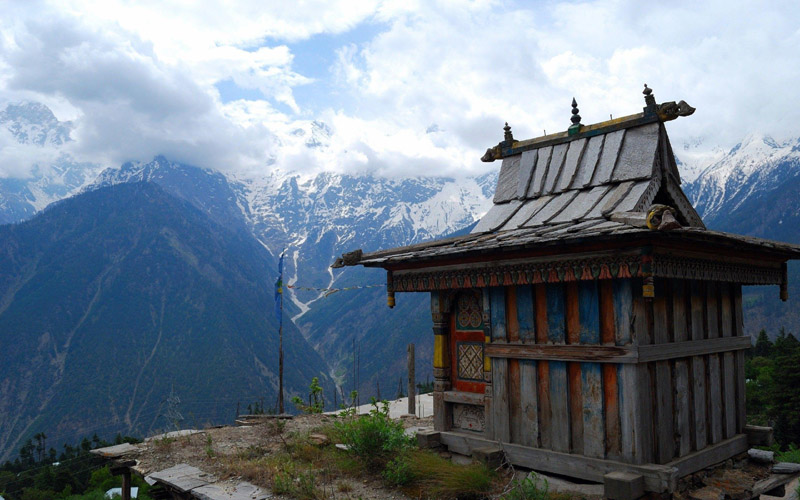
On the other hand China, which had earlier said that the TPSA “severely breached international law and basic norms governing international relations, interfered in China’s internal affairs, and sent a wrong message to ‘Tibet independence’ forces”, reacted angrily after the TPSA was passed in the Senate. It said that it “resolutely opposes” the “adoption of Bills containing such ill contents on China. Issues related to Tibet, Taiwan and Hong Kong… are China’s internal affairs that allow no foreign interference”. A Foreign Ministry spokesman urged the US “to stop meddling in our domestic affairs under those pretexts, refrain from signing the bills or implementing the negative contents and items in them that target China and undercut China’s interests, so as to avoid further damaging overall China-U.S. cooperation and bilateral relations”. China also said that it would impose reciprocal measures against unnamed American officials and their family members.
The US, by enacting the TPSA, has upped the ante against China vis-à-vis Tibet. Nevertheless, for the full impact of the act to take effect, the US would dearly love for India to back and build upon its initiative. India is uniquely placed in relation to Tibet. In addition to sharing a long border with it, India has hosted the Dalai Lama and tens of thousands of his followers since 1959, and the CTA has chosen India as its headquarters. In recent years, moreover, aggressive and expansionist Chinese behaviour has turned the peace and cooperation carefully cultivated by India into conflict and loss of trust. The US recognizes this, and a 2018 document on the US strategic framework for the Indo-Pacific that was declassified earlier this week provides glimpses into how the US views India and the role it could play in countering China.
The document states that “India maintains the capacity to counter border provocations by China. India remains preeminent in South Asia and takes the leading role in maintaining Indian Ocean security, increases engagement with Southeast Asia, and expands its economic, defence and diplomatic cooperation with other US allies and partners in the region. A strong India, in cooperation with like-minded countries, would act as a counterbalance to China”.
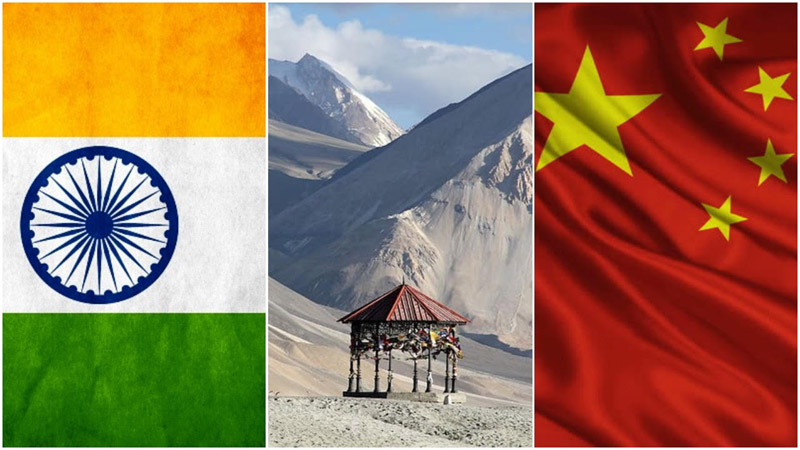
Against this backdrop, India has over the last nine months demonstrated patience and sagacity in dealing with China. While engaging closely with the US and bolstering the strategic partnership that it has forged with the world leader, India has resisted the temptation to jump head front into the anti-China gambit that the US has been stitching together.
It would be in China’s interest to recognize that the strategic restraint being exercised by India goes against the grain of the country’s ethos and beliefs. As the world’s largest democracy, India has been uncomfortable with China imposing restrictions on political activities by Tibetans.
It is also unhappy with China’s curbing of peaceful expression of ethnic and religious identity by the Tibetans, and its subjecting Tibetans to persecution, torture, imprisonment, and extrajudicial killings.
Further, as French Tibet watcher Claude Arpi has argued, India is not impervious to the environmental degradation of Tibet that is being overseen by China. The livelihoods of millions of Indian farmers depend on the Tibetan rivers, and the rivers also enable Indian hydroelectric projects and other industries.
As Arpi put it, “America is far away, but it is India which will suffer the brunt of the climate change on the Third Pole and the intensive damming on the Roof of the World”. Despite this, India has consistently opted against taking a hard line against China on Tibet because of its broader, long-term strategic interests.
Since the fatal clashes between the Chinese and Indian troops in the Galwan valley along the Line of Actual Control (LAC) last summer, an increasing number of voices have asserted that India’s position on Tibet needs to harden, and some experts now believe that the TSPA has shown India the way. They stress that it is time for India to strengthen its Tibet policy, as doing so will serve its diplomatic and geopolitical interests better. Arpi, for example, argues that the US Statement of Policy on Reincarnation of Dalai Lama should be reiterated by India.
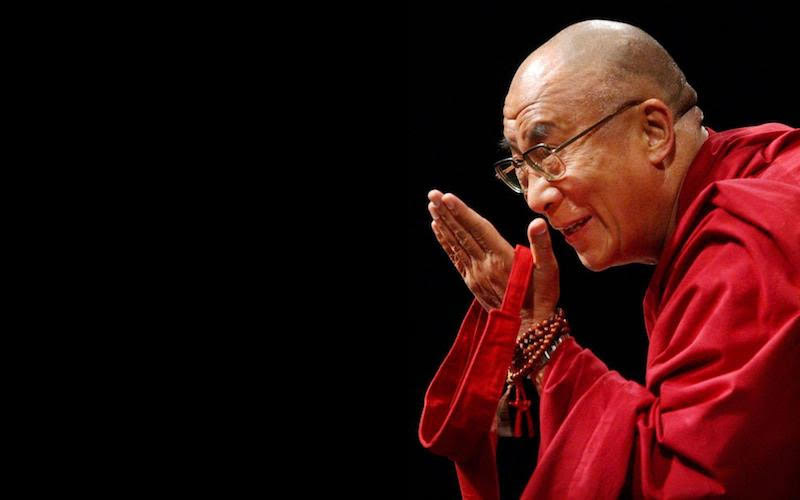
He said, “The wishes of the 14th Dalai Lama, including any written instructions, should play a determinative role in the selection, education, and veneration of a future 15th Dalai Lama. Why can’t South Block (India’s Ministry of External Affairs) simply state that it will support all the decisions taken by the Dalai Lama in the matter of his reincarnation and will welcome the 15th Dalai Lama as an honored guest of India like the present pontiff has been since 1959?”
Others such as Major General (retired) Ashok K. Mehta, a founding member of the Indian Defence Planning Staff, are of the view that with India’s firm support, the TPSA can become a powerful instrument for promoting democracy and human rights in the region. Mehta said, “One should hope President Biden will intensify the campaign for full freedom and autonomy in Tibet and that on this one issue India can form an active alliance with US, without forfeiting its strategic autonomy. India has to take the lead in Tibet’s cause and the time to act is now”. Mehta is convinced that the conditions are ripe for India to put the spotlight on Tibet, and he feels that “The Tibet issue can be internationalized – introduced in the UNSC in the two years of India’s chairmanship of it starting 2021. The Tibet issue can join the Draft Convention on Terrorism in the UN”.
The TSPA has armed India with more teeth in its ongoing confrontation with China, and the latter needs to wake up to the reality that a future abandoning of the policy of strategic restraint by India in favour of one in which it renames its border as the India – Tibet border, recognises the CTA and the Dalai Lama as the leader of the whole of Tibet, and demands Observer status for Tibet at the UN on the lines of Palestine, could gradually compel other democracies to come out in open support of Tibet and damagingly alter the dynamics for China forever.
Support Our Journalism
We cannot do without you.. your contribution supports unbiased journalism
IBNS is not driven by any ism- not wokeism, not racism, not skewed secularism, not hyper right-wing or left liberal ideals, nor by any hardline religious beliefs or hyper nationalism. We want to serve you good old objective news, as they are. We do not judge or preach. We let people decide for themselves. We only try to present factual and well-sourced news.





